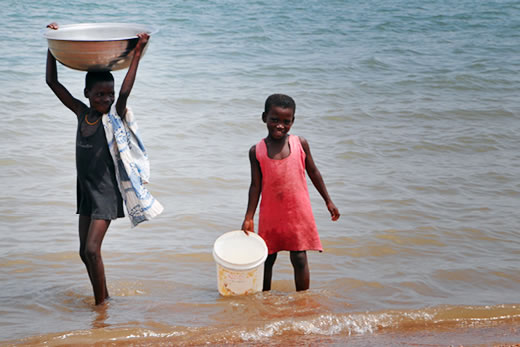Years ago, while working as a merger and acquisition lawyer in Latin America, Thomas Clasen came across a novel water filtration that he thought was ripe for development into a point-of-use water treatment system housed inside a water bottle. "I was intrigued by the idea of point-of-use water treatment as a way of jumping over poor infrastructure in low-income countries, much like the mobile phone networks. I thought if I made this great product, people would buy it, essentially 'build it and people will come,'" he says. "I learned all of my assumptions were wrong."
The water bottle system proved too costly for use in developing countries, but he sold the rights to it, ditched his 20-year law career, and headed off to the London School of Hygiene and Tropical Medicine to earn his master's and doctorate in waterborne diseases. He joined the faculty in 2004 and in August 2013 came to Rollins School of Public Health (RSPH) and its Center for Global Safe Water (CGSW) as the Rose Salamone Gangarosa Chair of Sanitation and Safe Water.
Since his early days in London, he's been a prolific researcher and writer. He's published more than 70 articles—evaluating household filtration in more than a dozen countries, assessing the effects of India's largest-ever sanitation campaign, and challenging the United Nations on its declaration that it had met its Millennium Development Goal of increasing safe drinking water when it did not use a sound metric to measure water quality. But what really irks him is the fact that more people around the world have cell phones than toilets, according to a United Nations study, and that the poorest 40% of people in southern Asia have barely benefited from improvements in sanitation.
"This is not about spending decades testing a vaccine," he says. "We know how to build latrines that safely contain feces and how to remove pathogens from drinking water. The challenge here is getting those solutions to the most vulnerable. The investment in water and sanitation overseas or by developing countries themselves in rural areas or urban slums has been flat or falling.
"So much of my work could seem frustrating since I often find there is no evidence of impact, even from interventions that are being widely promoted. I'd like to find interventions that work, but I take most of my satisfaction in designing and running a rigorous evaluation that says whether or not it's effective."
The opportunity to catalyze research opportunities through the endowed Gangarosa chair is the main reason why Clasen chose the Rollins School of Public Health. "Rollins is one of the few schools of public health that has made a genuine commitment in the area of water and sanitation," he says. "It has strong microbiologists and epidemiologists—I know them, and I know their work. Atlanta is pretty much ground zero for this area of work with CARE, the CDC, the Carter Center, and Rollins all here."

